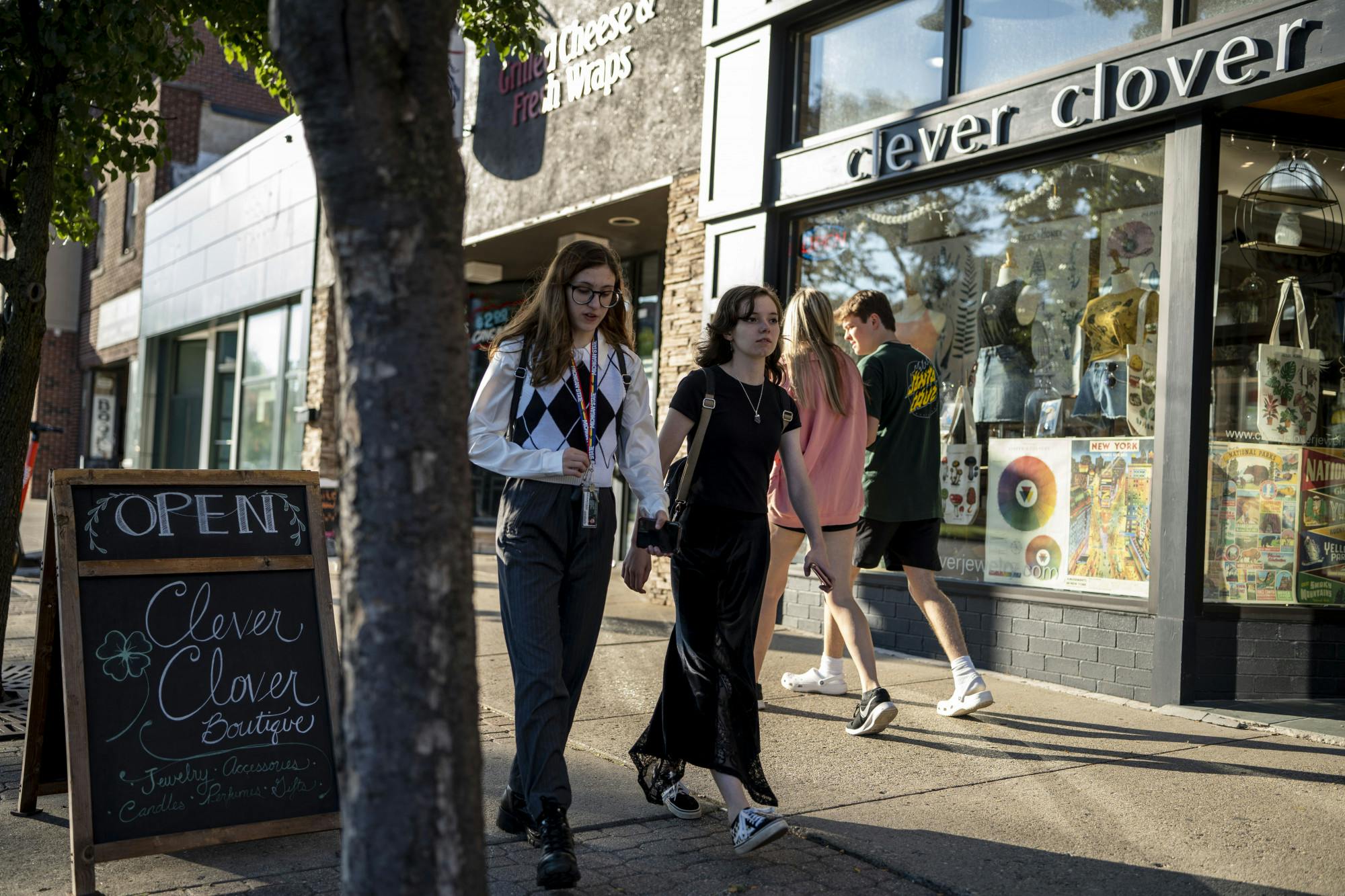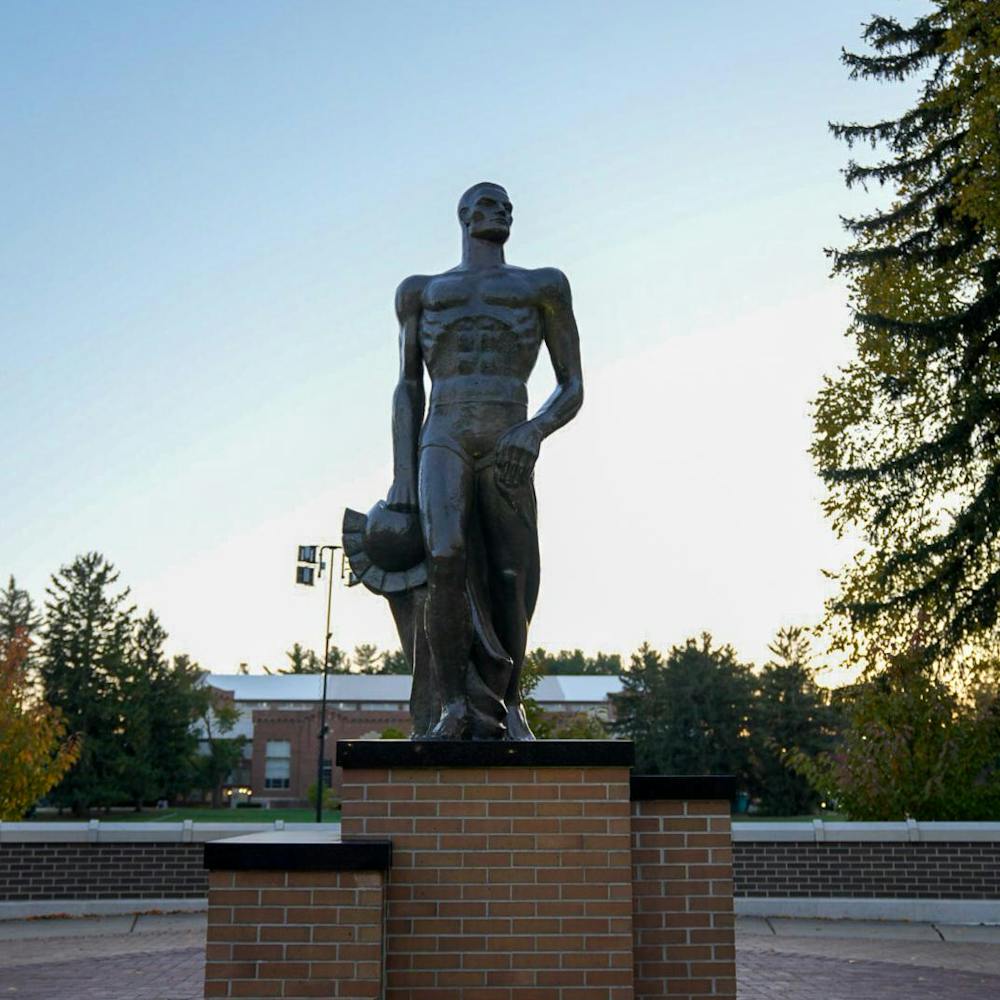Michigan State University — as well as the students, parents, staff and faculty that come with it — is the economic engine that runs the city of East Lansing.
A town of about 14 square miles, East Lansing has a population of around 47,000 and a median age of 21, according to the city’s community profile.
What differentiates East Lansing from any regular town is that there is a university at its center.
Does East Lansing need MSU?
“Obviously (East Lansing) gets most of its economic base from the university,” economics professor Ronald Fisher said. “It's different because there are a lot of students who live here.”
East Lansing's position as a "college town" puts it in a unique economic situation. Different from a big city with a college in it — in New York, for example, there are colleges but the city isn't financially dependent on it — it’s hard to imagine what East Lansing would be without MSU.
According to Census data analyzed by Data USA, in 2020, the majority of East Lansing’s population was in the 18-24 age range, at 54%. This age group has topped the population for many years. Nearly 41% of the city’s population is between 20 and 29.
On top of the students, the university carries ties to thousands of alumni who remain in the area post-graduation.
“(The MSU community) obviously brings a ton of foot traffic to our downtown, especially on game days, or things like that, where you have alumni returning, parents, friends, other things like that,” East Lansing’s community economic development specialist, Matt Apostle, said.
Apostle is part of East Lansing’s Economic Development Division which focuses on business outreach, downtown event planning and infrastructure that could increase community engagement across all people who make up East Lansing’s population.
“The interesting question is, 'Would East Lansing exist if the university wasn't here?'” Fisher said. “And the answer is, yeah, it might be here. And maybe there'll be something else here to support the local economy besides the university.”
East Lansing and the Greater Lansing area have a number of manufacturing and automotive facilities — as well as the State Capitol next door — that could serve as the economic background of the area if the university wasn’t there.
However, as of 2020, educational services make up the largest group of employment industries in East Lansing residents, according to American Consumer Survey data.
“The character of the place would be completely different,” Fisher said. “We wouldn't have students, we wouldn't have the type of people who are work for the university. We attribute (that) to the local economy.”
Fisher said the university is the base for East Lansing’s economy and while the city can critique the university, they could also argue that all economic activity is tied directly or indirectly to it.
Should businesses invest in a college town?
The niche makeup of a college town offers different opportunities for people looking to start or expand a business.
“I think a college town is a unique population," Apostle said. “You not only have students of all ages … we have a lot of faculty or other individuals with highly educated, creative people living in the city of East Lansing.”
Fisher said some businesses are attracted to college towns because of the student market and others are attracted to the strong and stable economy it offers.
Apostle said the university benefits from East Lansing being in a healthy economic state as well. Residents are attracted to lively atmospheres and are drawn to businesses in downtown East Lansing.
Support student media!
Please consider donating to The State News and help fund the future of journalism.
“It's a matter of wanting to make the downtown lively, make it a place that people want to be,” Apostle said. “If better businesses are coming downtown, people go to those businesses, and then that helps the economy of the city in general.”
East Lansing developments
Apostle said his team is interested in diversifying their development in the city and getting more service providers and retail.
East Lansing has seen a number of developments downtown, specifically with the handful of high-rise apartment complexes outlining the city in the last few years. East Lansing’s SkyVue Apartments opened to residents in fall 2017, the Hub On Campus and Landmark opened in 2019, the Abbot opened in 2020 and University Edge opened in 2021.
Fisher, however, doesn’t think it’s necessarily a trend, but more long-term natural development.
As for the rise in businesses opening downtown, Fisher said he would attribute those to the pandemic.
“We went through a period during the pandemic, (where) a lot of businesses closed,” Fisher said “... And now either things are reopening, or new things are coming into play.”
In the downtown area, businesses like D.P. Dough, Detroit Wing Company, Goodfellas Bagels, Raising Cane’s Chicken Fingers and Playa Bowls have all opened in the last year. And more are coming – an Auntie Anne’s and Jamba Juice dual storefront, for example, will also open soon.
Despite the apparent changes in the last five years or so, Fisher said that the base of the university in East Lansing hasn’t changed.
If MSU was not in East Lansing, perhaps something else would take its economic place, Fisher said. The dynamic of a college town is interesting and ever-changing like the community that resides in it.
“Even though we've got new buildings, the same thing that is supporting those buildings as it was before it," Fisher said. "The students (are) both directly renting apartments and indirectly funding the university, so that all of us, the employees, can live here and spend money, too. So I think that's sort of the underlying economic base."
Discussion
Share and discuss “Experts break down economic impact of MSU on East Lansing” on social media.








